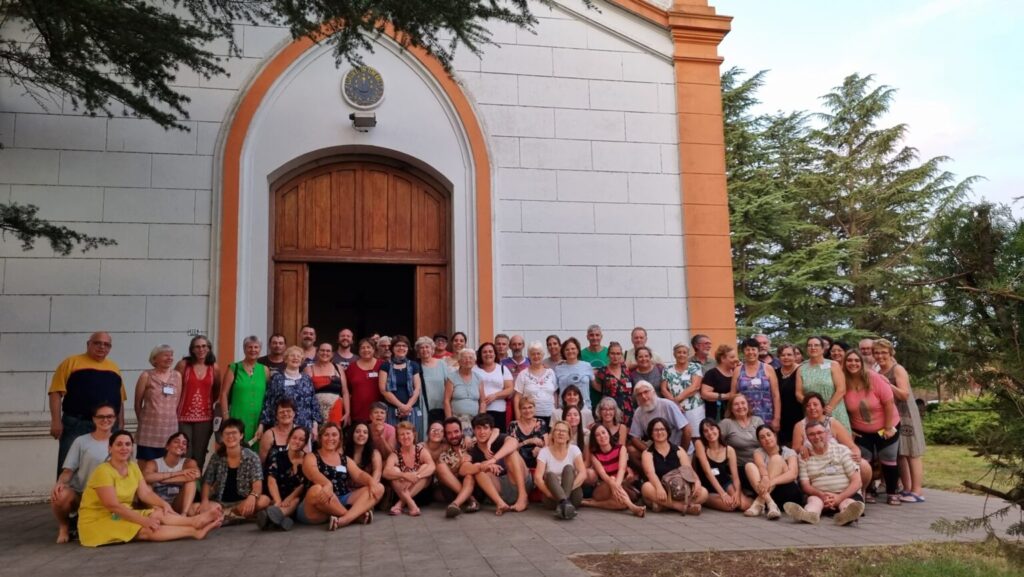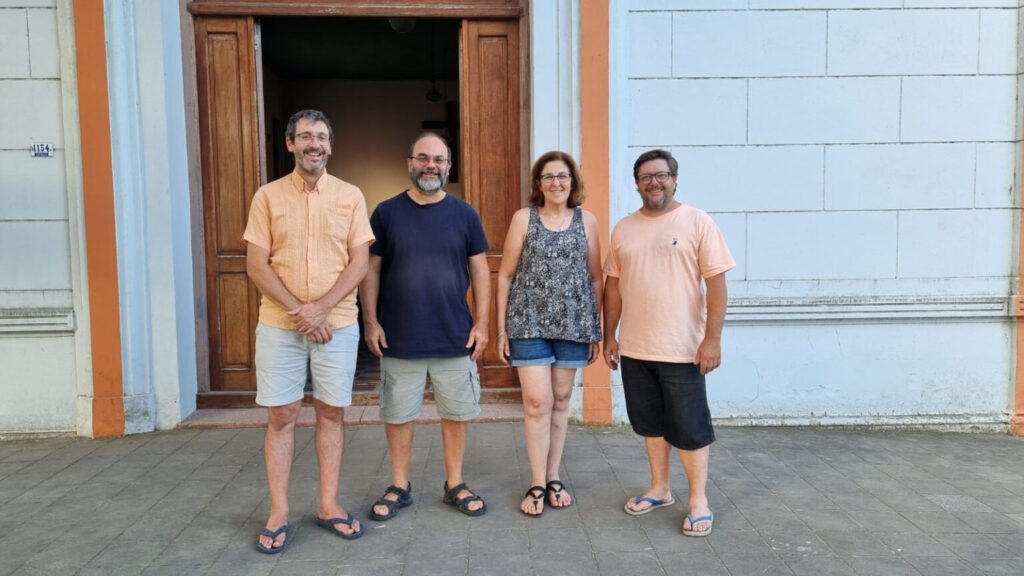
Waldensian Synod 2024
ARGENTINA-
On Saturday January 27th the 60th Riverplate Synodal Assembly of the Evangelic Wladensian Church of the Riverplate came to an end after a four-days’ session at the Jacinto Arauz facilities, within the boundaries of the Colonia de Iris Church. This synod was particular to initiate the celebration of the 850 years of the Waldensian Movement.
For this purpose there exists a commission in charge of holding thoughout the year homages of different times, processes of this long-running history and suggesting and proposing to the communities different activities complementary to the commission’s own. The goal of this time is to review history, not to get stuck in the past, but to make the history of the Waldensian Movement encourage, support and brighten the future of the Walensian community.
As to the particulars on the topics of the assembly, decisions were made as to the pathways taken during this time. Hence, it is apropriate to highlight the training of lay people and the creation of the Communications Secretary which, in a way, will revitalise the Waldensian history and identify the challenges that the current times pose to communication in terms of internal matters, but, fundamentally, make the message and mission of the church go beyond its boundaries.
The decisions made in relation to the diacony have to do with a more straightforward way to understand and face its institutional and communitary aspects, which need to get the strength, the relevance and testimony back.
In addition, the synod dealt with the issue of domestic violence and generations, a topic that has been discussed and is part of an institutional process. This time, a Synodal Commission was formed with the goal of following up the protocol and collaborate with the communities so as to create sensibility towards the issue. Furthermore, the institutional overload was acknowledged, in both the cases of the Synod and the Walensian Table, which is why a transformation process was initiated to hold shorter synodal assemblies where to discuss material and prioritary issues, and with the chanllenge of
continuing the search for mechanisms that improve the work dynamics.
A new era of support and commitment also began for teenagers and the youth. A team, Requinto, officially started working thanks to this synod and had previously been working on the development of a project, with the intention of strenghtening the teenage and youth groups in churches.
Lastly, the Wladensian synod celebrated the work of the Argentine Commission for Refugees and Immigrants (CAREF, in Spanish), for their 50 years of work, mainly with political refugees during the dictatorships forced upon the countries of the South, and, today, with modern issues concerning migration. As a church part of this Commission, testimony is celebrated, and the commitment is reinforced to continue working in this direction under an ecumenical point of view.

Re-elected Waldensian Table _ Dario Barolin, Marcelo Nicolau, Marta Garnier y Brian Tron
Re-elected Waldensian Table: Dario Barolin, Marcelo Nicolau, Marta Garnier and Brian Tron
The Riverplate Synodal Assembly also held the elections of Synodal Commisions and Waldensian Table.
The latter was conformed ultimately as follows:
Marcelo Nicolau, moderator.
Marta Garnier, deputy moderator.
Darío Barolín.
Brian Tron
Daniel Geymonat.
Substitutes: Álvaro Michelín Salomón and Laura Gonnet.
Source and pictures: Press of IEVRP
